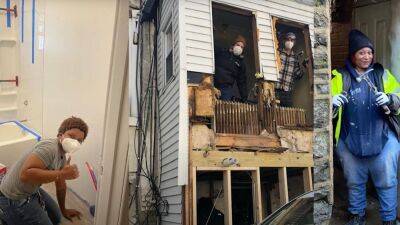Study spotlights Omicron's impact on unvaccinated, rural Americans
Though it causes less severe disease than the Delta variant, the highly transmissible Omicron SARS-CoV-2 variant has been twice as deadly in unvaccinated people and has therefore hit rural Americans harder than those living in cities, a study today in Frontiers in Medicine finds.Because low-vaccination parts of the country are mostly rural, those living in less densely populated areas continue to bear the highest COVID-19 burden, according to the study authors, who hail from universities in four US states and Zimbabwe.
They worry that rural America will face a disproportionate long-term impact from lingering symptoms known as long COVID."We're talking about an extra burden that rural counties face.
They face a higher probability of developing chronic illness from long COVID," said co-author Claudia Moreno, PhD, assistant professor of physiology and biophysics at the University of Washington, in a University of Cincinnati news release.Rural-versus-urban disparitiesFor the cross-sectional study, the researchers analyzed data on COVID-19 cases and deaths, as well as vaccination status, in 2,417 counties from Dec 1, 2021, to Jan.
31, 2022, when Omicron was the dominant strain.During the study period, the incidence rate increased from 538.9 new cases per 100,000 population to 2,827.9.













































